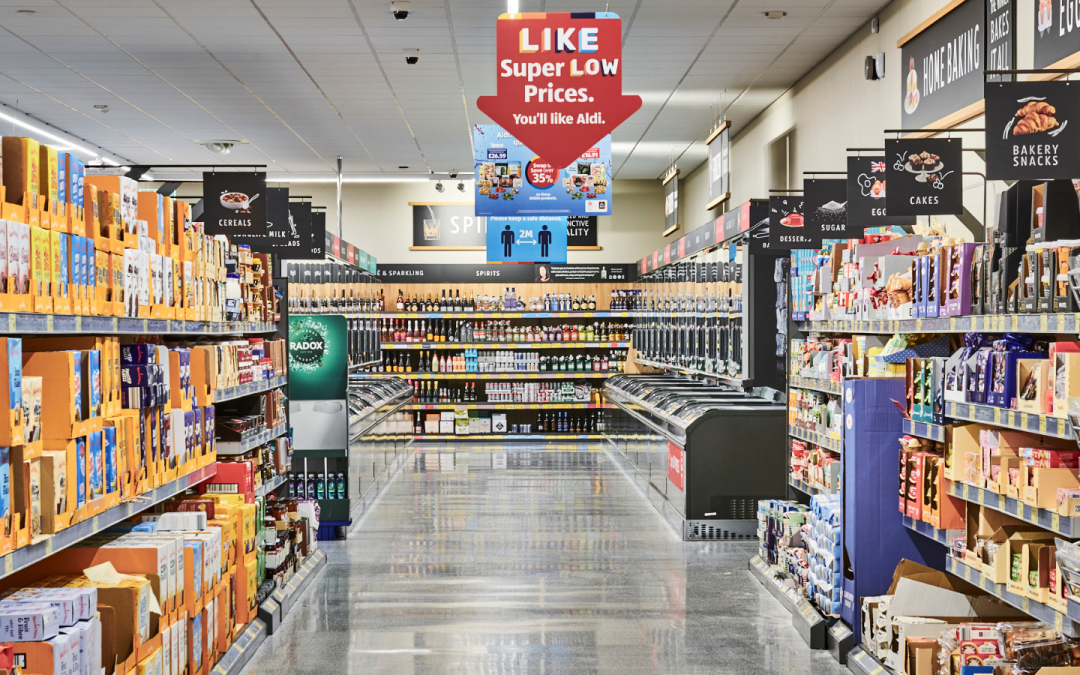The latest ShelfWatch update was released by National Farmers’ Union (NFU) Scotland, labelling Aldi as the retailer stocking the most own-label Scottish produce.
On behalf of the Union, an independent research collective surveyed Scottish produce on sale in over 290 stores across seven Scottish regions.
M&S Food made the largest improvement over the year in its support for Scottish produce. While Sainsbury’s had the lowest percentage of Scottish produce on sale in 2024, it had the highest percentage of British.
Eggs
The research highlighted an average of 76% support for Scottish eggs. Across three phases of ShelfWatch, Aldi and Lidl consistently stocked only Scottish eggs. Across all retailers, no eggs were imported.
Co-op made the best improvement with 100% Scottish recorded in Phase 4. Tesco made some improvement between May 2024 and January 2025, from 71% Scottish to 80%. M&S Food dropped its Scottish egg sourcing by 16% across the year.
Dairy
Only 4% of supermarket own-label cheese was Scottish but 67% was British. Aldi came out on top, with an average of 20% across all ShelfWatch phases, followed by Lidl at 15%.
Morrisons was third overall with 5% Scottish but was closely followed by Co-op at 4%, Asda at 3% and Tesco at 1%. M&S Food and Sainsbury’s had no own-label Scottish cheese on sale across 2024, but sourced around 70% of its cheese from within the UK.
In the yogurt category, Aldi and Sainsbury’s led the way with 3% Scottish on sale, followed by Lidl at 2% and Asda at 1%. Only 23% of yogurt surveyed in retailers was own-label.
ShelfWatch found limited Scottish Butter on sale in all eight supermarkets, and there was a general 1% drop of Scottish butter on shelves across 2024. All retailers stocked mostly British butter, but Aldi stocked the most Scottish with an average of 37% own-label available.
Supply chains are “complex”
NFU Scotland president Andrew Connon commented: “ShelfWatch has delivered vital insight. Our clear message to retailers is that by working together, we have a golden opportunity to support Scotland’s farmers and crofters as well as giving their customers more of what they want. We know that the value of grocery sales across Scotland is significant and we believe Scottish farmers and crofters could get a greater share of this value if retailers work with us and the wider industry to take forward the actions we set today.
“Overall, these results show a disappointing level of Scottish sourcing with around 17% of own-label products labelled as Scottish and no real improvement throughout the year.
“That said, the picture is very mixed across each of the retailers. I’d like to congratulate Aldi in particular, who consistently held the highest levels of Scottish sourcing throughout the year, and also to Lidl for their ongoing commitment.
“Through this work, we have identified the key areas for action and commitment retailers. NFU Scotland, along with other industry partners, stand ready to work in partnership to support this. If we get it right, the results could be transformational for our farmers, crofters, and growers.
“Of course, none of this will happen in isolation and we need to see effective government policy that supports a vibrant farming industry and enables our members to have the confidence to invest for the future.”
Connon concluded: “Clearly the nature of local and global supply chains is complex and there are many factors that contribute to retailers’ sourcing and labelling decisions. We recognise these complexities and will work with retailers to better understand these factors.
“What this data shows us is the huge opportunities that exist for Scottish Agriculture if the right actions and decisions are made. NFU Scotland will be relentless in pursuing these for the betterment of our members and wider industry.”









